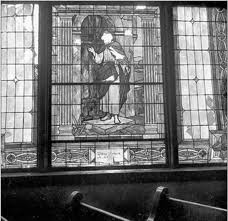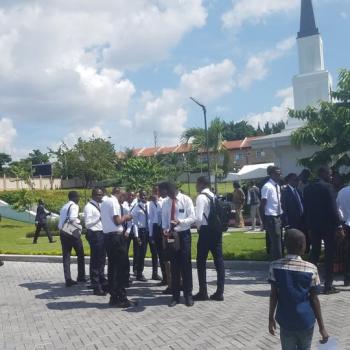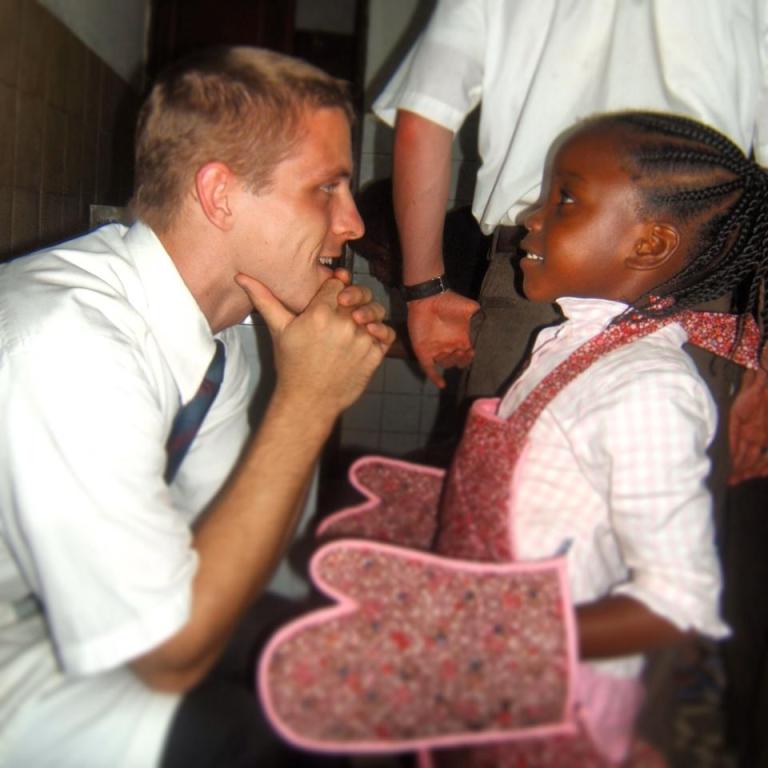Note: I give my creative writing students an exercise in telling “untold” scripture stories, such as Leah’s or Bathsheba’s, imagining what their version of the story might have been. It is an imaginative experiment. This is my own exercise imagining Sarah.

He thought I was sleeping, but I had awakened hours before. I knew his mind. He thought he could predict me. He considered my gasp a sign of naivete, at the time when the stranger said I would bear a son even in my old age. It was a gasp, not laughter, though the stranger insisted I had laughed and asked why. I spoke the truth, saying I had not laughed. He thought me afraid and said, “Nay, but thou didst laugh.” My husband sided with him, never understanding. I could see his quiet patience with me–a virtue in many places–and did not tell him even a part of what I knew.
I had not laughed. I had gasped in amazement and joy. Why should I fear or doubt? My body had surprised me from my earliest memories. The signs of my fertility, my womanhood, even my power over men amazed me. The ways my sorrow could summon tears and groans, rocking me like my body was itself a storm told me I was strong. What power is this, I thought when grief overwhelmed me and I became an angry sea–what power is this that magnifies me so terribly? And when jealousy took me, I felt the power of my body even to kill Hagaar. I protected her by telling Abraham to send her away.
I regret that moment more deeply than I can say. I do not believe, now that I know who I am, that I would have killed her. I didn’t trust myself against the potency of my emotions. Then I saw in my husband’s eyes and in the hard curve of his mouth that he would punish me. He was not a man easily soothed or healed. His wrath against me was born in the instant I told him to sacrifice his first son, Ishmael, by sending him and his mother away. I knew he would not forget, regardless of his desperate prophecies. His revenge began unfolding at that moment.
I am not a woman of many words, and when I rejoice, I do it quietly. Hagaar, however, laughed easily and sometimes mockingly. She could not have known what I had realized—that I was no longer a docile woman, apologizing for whatever happened, compensating for what seemed my own failings, trying to make my husband content even at the price of my pride. I had given birth to a son. My body had proven itself, and I was set to resume my rightful place, the place I had ceded to her. I had seen her standing beside Abraham as though she were his helpmeet and he hers, and our sons would likewise stand as equals. No. God had changed my name. Once, my name belittled me. Sarai—she who is quarrelsome. Perhaps when I was a child, the name fit. It did not fit the woman I had become. I was Sarah, a princess alongside Abraham, the prince. I demanded that he send her and the boy away. And immediately, I knew I had done wrong.
I ran after her when all had gone into their tents. I had walked in that desert many times, contemplating not just its barrenness but its beauty. It was eternal. And though it seemed waterless, I knew where the wells were, and I called out to her. “Hagaar,” I said. “Don’t be afraid!” I tossed a pebble into the place where I had drunk many times, and she heard the small splash of hope. She hand-scooped water into her son’s mouth and then into her own, and then they both slept. I went to her, stroked her hair, stroked her son’s hair. You must understand that I loved them. We had spent years together. I am certain she thought it only the wind when I moved my hand over her forehead and kissed her cheek. I left a dead owl at her feet, and knew that they would eat well when they awoke.
The night of Abraham’s revenge came long after I had thought it would. He was listening to distant buzzards, and I knew he was thinking of Ishmael. He looked at me and I smiled. His whole face went grim.
I knew.
He loved Isaac. Let there be no doubt of that. He was a stern but loving father. He did not plan to do what his other self–the self that knew how fathers would sacrifice their sons for so many reasons; the self that wondered if he was listening to the right voices–was suggesting.
I saw it all in his face. He went to his tent, shoulders slouched. He patted Isaac, who was taller than he, on the head, and told him to sleep well, for they would hike tomorrow before dawn.
When my husband’s lamp went out, I took the ram from the fold and started my own hike. I knew the other trail as though it had been taught to me in my dreams. I rounded cliffs lit up by a mercifully full moon, with the ram tethered to my hand. It bawled and I fed it, and then we climbed again. I knew where the altar would be. He had offered many sacrifices there. The wood and the stones were all waiting to be put into order, waiting to be ordained.
The sun was just rising when I saw them. Yes, it was exactly as I knew it would be. Innocent Isaac and weary, heartbroken Abraham. Heartbroken for the tragedy he would bring to his own life, and for the tragedy I had already demanded of him. He never knew that I had gone to Hagaar. There were many things about me which he never knew.
I tied the ram to a small tree, and soon it was caught in a thicket. (Rams are wont to use their horns unwisely.) We were far enough from Abraham that even had the ram wailed, the sound would not have found his deaf old ears.
I heard my son.
“Father?”
Abraham didn’t look at him, but gathered the wood and piled the stones in the prescribed manner.
“Father? Where is the lamb?”
“The Lord will provide,” said my husband, pleading with the sky, which was growing light, though the sun had not yet appeared.
My son said, as had his father many times, “Here am I.” He understood, and presented his arms to be bound. Abraham, weeping, bound them.
“What do I do?” Isaac asked.
“Lie still. On the altar.”
It was not a tall altar. Isaac climbed easily onto it. He lay still as my husband bound his legs.
“I won’t leave,” said Isaac.
“The Lord will provide.” Again, Abraham looked skyward. “God?” he begged.
The sun presented its first light, a brilliant sliver, and I took my place on a ledge five feet from the altar. Abraham was still looking up. Even had he seen me, he would not have seen my face, for the first rays were blinding. He saw a form within a fan of light, and heard a voice he did not know because he did not expect it. He never thought I would be capable of such a thing.
“Abraham,” I said. “Lay not thy hand upon the lad. Neither do anything to him.” At that moment, I was every mother standing guard over her son. I was every mother a dying soldier called out to, every mother holding her boy’s hand in soul-stretching times. I was even Abraham’s mother.
“Lord?” my husband said.
“Listen,” I answered. “A ram in the thicket.”
Abraham bent over, then fell on his face, weeping with every part of his body. “The Lord has provided,” he sobbed.
I left as he said it, hearing the quick cut of the straps and the groaning embrace of father and son. I rounded the bend and headed down that other path.












